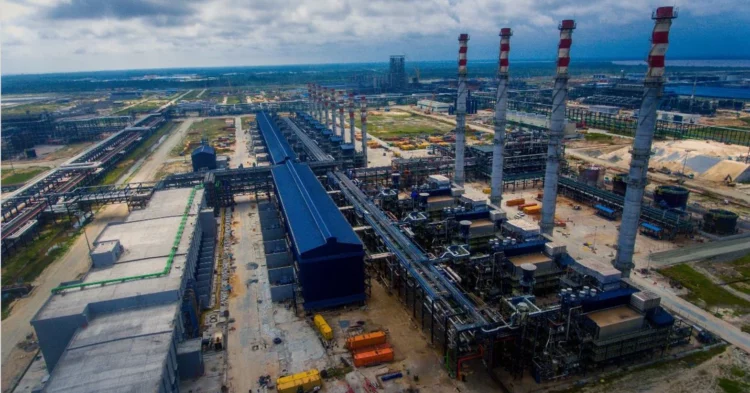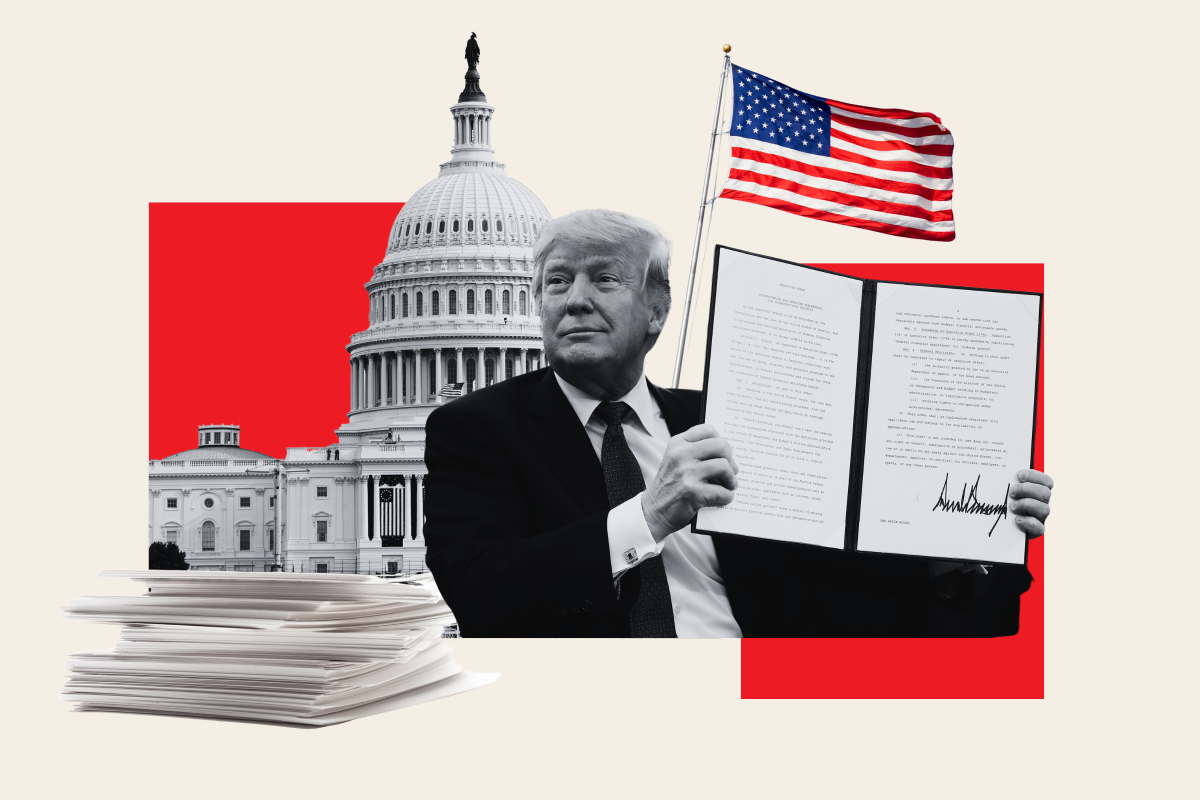Analyzing The Impact Of Dangote's Refinery On NNPC's Petrol Pricing Power

Table of Contents
Increased Domestic Refining Capacity and Reduced Reliance on Imports
The Dangote refinery significantly increases Nigeria's domestic refining capacity, drastically reducing reliance on expensive imported refined petroleum products. This shift in supply dynamics has profound implications for NNPC's control over petrol pricing and the overall Nigerian economy.
Shifting Supply Dynamics:
- Before the refinery, Nigeria imported a vast majority of its petrol needs, leaving it vulnerable to global price fluctuations and supply chain disruptions. These imports significantly impacted petrol pricing, often leading to unpredictable price hikes.
- Increased local production can lead to greater price stability and reduced vulnerability to external shocks. The nation becomes less susceptible to international market volatility.
- This shift alters the balance of power, potentially weakening NNPC's control over supply and subsequently, pricing. NNPC's previously dominant position is challenged by a significant new player.
Impact on NNPC's Market Share:
The entrance of a major private player like Dangote into the refining sector directly challenges NNPC's dominance in the market. This increased competition could reshape the landscape of petrol distribution and pricing in Nigeria.
- NNPC will face increased competition, potentially forcing it to adjust its pricing strategies to remain competitive. This could lead to more efficient operations and better service.
- This competition could lead to more transparent and market-driven pricing mechanisms. The days of solely NNPC-dictated prices might be over.
- The overall effect on NNPC's revenue and profit margins needs further observation. While competition might reduce profits, it could also incentivize NNPC to improve efficiency.
Potential for Lower Petrol Prices for Consumers
With increased supply and a new major competitor, the pressure on NNPC to maintain artificially high prices could lessen. This increased competition has the potential to translate into lower petrol prices for Nigerian consumers.
Increased Competition and Price Pressure:
- A more competitive market environment can drive down petrol prices for consumers, benefiting the Nigerian economy. Lower petrol prices could stimulate economic growth across various sectors.
- However, the extent of price reduction will depend on factors like crude oil prices, operational costs, and government regulations. These external factors can influence the final price at the pump.
- The potential for price wars between NNPC and Dangote could further influence prices. This competition could ultimately benefit consumers.
Government Regulation and Subsidy Schemes:
The government’s role in regulating petrol prices and managing subsidy schemes will significantly influence the final impact on consumer prices. Government policy is crucial for a fair and competitive market.
- Government policies will play a crucial role in determining the degree of price liberalization and the extent to which competition can drive prices down. A deregulated market could lead to more competitive pricing.
- Subsidy removal or adjustments could further impact the price at the pump, potentially offsetting any benefits of increased competition. Subsidy reform is a key aspect to consider.
- Transparent and consistent government policies are crucial for a stable and competitive market. Predictable policies encourage investment and fair competition.
Challenges and Uncertainties
The long-term success of the Dangote refinery in impacting NNPC’s pricing power hinges on its operational efficiency and sustained high capacity utilization. Several challenges and uncertainties remain.
Operational Efficiency and Capacity Utilization:
- Any operational challenges or underutilization could limit its impact on the market. Consistent, high-capacity operation is essential for market impact.
- The refinery needs to maintain consistent and reliable output to effectively challenge NNPC's dominance. Maintaining production is crucial for sustained competition.
- Long-term maintenance and upgrades will be critical for its continuous operation. Investment in maintenance is vital for long-term success.
Regulatory Framework and Market Stability:
A stable and predictable regulatory environment is crucial for a fair and competitive market. Clear and consistent regulations are necessary.
- Clear and consistent regulations are necessary to prevent market manipulation and ensure fair competition. A level playing field is crucial for a competitive market.
- The government's role in ensuring transparency and enforcing regulations is critical. Government oversight is key to preventing market abuse.
- Uncertainties surrounding regulatory changes could affect investor confidence and market stability. Predictable regulations are essential for attracting investment.
Conclusion:
The Dangote refinery's impact on NNPC's petrol pricing power is a complex issue with both potential benefits and challenges. While increased domestic refining capacity and competition are likely to put downward pressure on prices, factors such as government regulation, operational efficiency, and global oil prices will play a significant role in determining the ultimate outcome. Further analysis and monitoring are crucial to fully assess the long-term consequences of this major development in Nigeria's petroleum sector. Understanding the evolving dynamics of the Dangote Refinery and its influence on NNPC's petrol pricing is essential for navigating the future of Nigeria's energy landscape. Continued observation of petrol pricing in Nigeria is crucial to evaluate the complete effects of this significant development. The future of petrol pricing in Nigeria will depend heavily on the success and impact of the Dangote Refinery.

Featured Posts
-
 Stiven King Povernuvsya Komentari Pro Trampa Ta Maska
May 10, 2025
Stiven King Povernuvsya Komentari Pro Trampa Ta Maska
May 10, 2025 -
 Analysis Perus Mining Ban And The 200 Million Gold Price Tag
May 10, 2025
Analysis Perus Mining Ban And The 200 Million Gold Price Tag
May 10, 2025 -
 Leon Draisaitl Injury Oilers Leading Scorer Exits Game
May 10, 2025
Leon Draisaitl Injury Oilers Leading Scorer Exits Game
May 10, 2025 -
 Solve Nyt Strands Puzzle 366 Tuesday March 4 Complete Guide
May 10, 2025
Solve Nyt Strands Puzzle 366 Tuesday March 4 Complete Guide
May 10, 2025 -
 Transgender Individuals And The Impact Of Trumps Executive Orders Your Experiences Matter
May 10, 2025
Transgender Individuals And The Impact Of Trumps Executive Orders Your Experiences Matter
May 10, 2025
